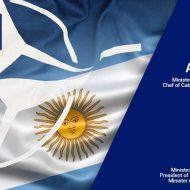Ecuadorian authorities revoked Julian Assange’s asylum and then allowed police to arrest him inside the country’s London embassy. The founder of WikiLeaks was detained inside the embassy on Thursday, with seven men dragging him out of the building and into police custody. The former president of Ecuador Rafael Correa has already condemned current president Lenin Moreno’s decision to revoke Assange’s asylum, calling it “the greatest betrayal in the history of Ecuador and Latin America”.
The greatest traitor in Ecuadorian and Latin American history, Lenin Moreno, allowed the British police to enter our embassy in London to arrest Assange.
Moreno is a corrupt man, but what he has done is a crime that humanity will never forget. https://t.co/XhT51MA6c6— Rafael Correa (@MashiRafael) April 11, 2019
Assange’s current status
US authorities reportedly filed charges against the WikiLeaks founder on hacking allegations. Assange is accused of conspiring with WikiLeaks informant Chelsea Manning to steal and publish secret government documents. In the US, he faces up to five years in prison.
At the court session, where the issue of extradition was resolved, there were employees and lawyers representing the US, a BBC correspondent reports.
Assange’s lawyer says that he will fight against extradition to the US. According to him, extradition could be a threat to his client’s life, as the US could seek the death penalty on the espionage charges.
No decision has yet been reached regarding the extradition. The next court date is scheduled for May 2.
Who are you, Mr. Assange?
Australian programmer and journalist Julian Assange gained wide popularity after the WikiLeaks website he founded in 2010 published secret documents from the US State Department, as well as materials relating to US military operations in Iraq and Afghanistan.
Among the materials published by WikiLeaks was a video made from an American helicopter in Iraq in 2007. The video allegedly captured the “Baghdad airstrike on July 12, 2007,” where US troops are seen laughing as they killed between 12 and 18 people including Reuters journalists Saeed Chmagh and Namir Noor-Eldeen. The troops also fired upon and killed the first responders who arrived to assist the wounded.
The video and images were replicated by media around the world, leading to shock and outrage.
After a few months, Wikileaks began to publish thousands of secret American documents relating to the wars in Iraq and Afghanistan.
After the publication of these documents, WikiLeaks faced serious financial difficulties, as a number of US financial institutions tried to block donations to the organization’s accounts.
Shortly after the publication of secret documents in August 2010, Sweden issued an international arrest warrant for Assange on charges of sexual harassment and rape.
On December 7, 2010, Assange was arrested by the London police after voluntarily appearing at the police station, and nine days later, the High Court in London released the founder of WikiLeaks from prison on bail.
In 2012, after a British court ordered his arrest and extradition to Sweden, Assange took refuge in the Ecuadorian embassy in London.
Assange had not gone beyond the embassy in 7 years, communicating with the outside world via the Internet and occasionally receiving visitors. Meanwhile, in Sweden, the investigation into his case was eventually dropped.
Ecuador’s position
Before the arrest, Ecuador had even granted citizenship to Assange, as former president Rafael Correa shored the hacker’s antiglobalist agenda. He widely criticized US policies and welcomed the publication of the secret documents exposing crimes committed in the Iraq and Afghanistan. Even before Assange came to him asking for shelter, he managed to personally meet Correa, interviewing him for Russia Today.
However, in 2017, power in Ecuador changed and the country headed for rapprochement with the United States. The new president called Assange a “stone in [the country’s] shoe” and immediately made it clear that his stay in the embassy would not go on for long.
According to the ex-president of Ecuador Rafael Correa, the moment of truth came at the end of June last year, when US Vice President Pence arrived in Ecuador for an official visit.
“You can be sure: Lenin is just a hypocrite. He has already agreed with the Americans about Assange’s fate. And now he is trying to make us swallow the pill, saying that Ecuador is allegedly continuing the dialogue,” Correa said in an interview.
What will happen to Assange now?
According to the police, Assange was arrested at the request of the United States to be extradited for publishing classified documents. At the same time, the deputy head of the British Foreign Ministry, Alan Duncan, said that Assange would not be sent to the United States if he might face the death penalty there.
Guardian front page, Friday 12 April 2019: Assange faces five years in US jail as standoff ends pic.twitter.com/TF91AjHB53— The Guardian (@guardian) April 11, 2019
At the same time, the Swedish Prosecutor’s Office is considering the possibility of resuming an investigation on the rape charges. Advocate Elizabeth Massey Fritz, representing the interests of the alleged victim, will attempt to make this happen now that he has been arrested.
“My client and I just received the news that Assange was detained. Finally, what we have been waiting for and hoping for over the past seven years has happened. We intend to do everything so that the prosecutor’s office resumes the investigation, to send Assange to Sweden and to make him appear before the court on rape charges, ” – Fritz told the Expressen newspaper on Thursday.
Chronology of Assange’s activity
July 3, 1971 – born in Townsville, Queensland, Australia
1987 – becomes a hacker under the nickname Mendax
December 2006 – establishes WikiLeaks in Iceland
April 2010 – WikiLeaks publishes classified material sent to him by American intelligence officer Bradley (Chelsea) Manning
May 2010 – Manning arrested in the United States, investigation launched against Assange
August 2010 – Assange visits Sweden, where he is accused of sexual harassment by two women
November 2010 – Interpol announces Assange to be on the international wanted list for sexual offenses
December 2010 – Assange is recognized by readers of Time magazine as “man of the year”
June 2012 – Assange takes refuge in the Ecuadorian embassy in London and asks for political asylum
February 2016 – UN Working Group declares Assange a victim of unreasonable persecution for the purpose of imprisonment by the authorities of Sweden and the UK
July 2016 – WikiLeaks publishes email stolen from Hillary Clinton’s email server during the US election campaign
May 19, 2017 – Swedish prosecutors refuse to further investigate the case of Assange
January 2018 – Ecuador grants citizenship to Assange
February 7, 2018 – adoption of a court decision on a previously issued British arrest warrant for Assange
April 11, 2019 – London police detain Assange
“I know nothing about WikiLeaks. It’s not my thing,” President Trump said about the arrest of Julian Assange.During the 2016 election, Trump repeatedly said he “loved” the organization when it was releasing emails related to Hillary Clinton’s campaign. https://t.co/1ZdtE5faPT— NPR Politics (@nprpolitics) April 11, 2019









Leave a Reply